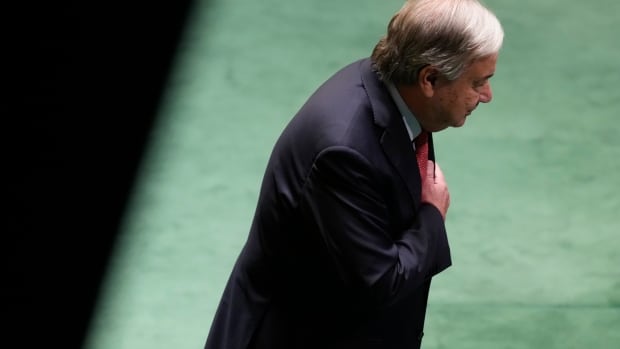
“We are edging towards the unimaginable,” United Nations Secretary-General Antonio Guterres told assembled world leaders on Monday. “A powder keg that risks engulfing the world.”
“We can’t go on like this,” he added, describing “a world of impunity where violations and abuses threaten the very foundation of international law and [the] UN Charter” — the core UN principle that it is illegal for nations to acquire territory through force, and that other nations must act to prevent them.
If one phrase encapsulates the fissures that opened up earlier this week as the world’s nations met for their annual UN General Assembly, it was “double standards.”
“We rebel against the double standards on human rights,” said Chile’s President Gabriel Boric.
“Human rights cannot be judged according to which dictator or president happens to be violating them, whether it happens to be [Benjamin] Netanyahu in Israel or [Nicolás] Maduro in Venezuela, whether it’s [Daniel] Ortega in Nicaragua or [Vladimir] Putin in Russia.”
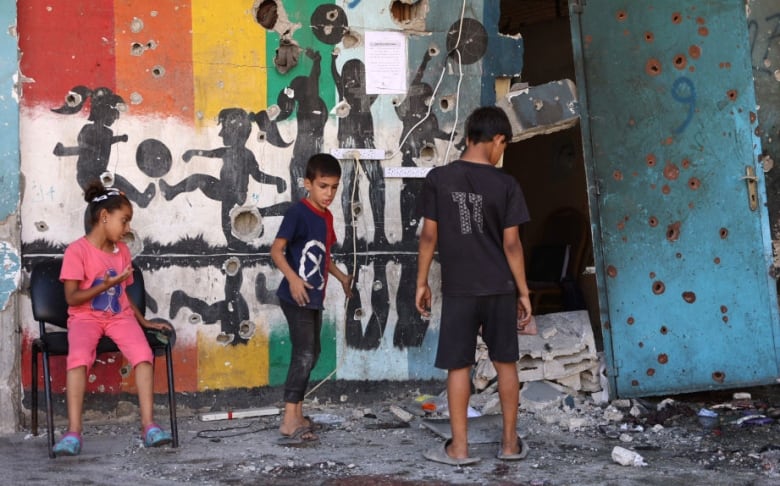
The world owes the same debt to “the teenage girl murdered in Gaza,” he said, as to “the Ukrainian child kidnapped into Russia, the dissident silenced in Nicaragua, or the woman expelled from school in Afghanistan just for being a woman.”
The eruption of war in Lebanon in the wake of Israel’s pager-bomb attacks and the escalation of cross-border hostilities by Hezbollah and Israel raised tensions in what was already certain to be a fraught UN session.
“The speed and scale of the killing and destruction in Gaza are unlike anything in my years as secretary general,” said Guterres. “More than two hundred of our own staff have been killed, many with their families.
“The people of Lebanon, the people of Israel and the people of the world cannot afford for Lebanon to become another Gaza.”
Trust in UN Charter ‘crumbling’: King Abdullah
Moments after meeting with Prime Minister Justin Trudeau, King Abdullah of Jordan called out countries that remained mute as Israeli forces killed UN staff and ignored UN court rulings.
“This Israeli government has killed more children, more journalists, more aid workers and more medical personnel than any other war in recent memory,” he said.
“Humanitarian workers who proudly wear the emblem of this institution are disparaged and targeted, and the rulings of the UN’s International Court of Justice are defied, its opinions disregarded.
“So it’s no surprise that both inside and outside this hall, trust in the UN’s cornerstone principles and ideals is crumbling.”
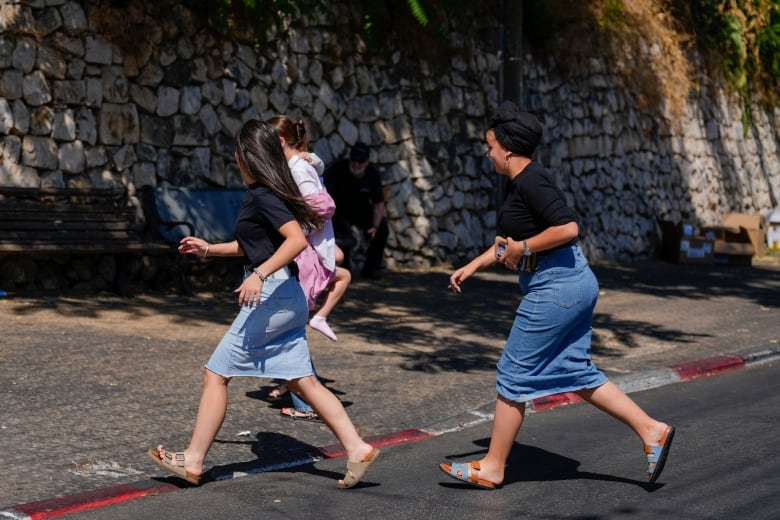
The new conflict in the Middle East only intensifies the pressure felt by western governments, and particularly the United States, which has often used its Security Council veto over the past year to shield Israel and block ceasefire resolutions.
That pressure is not only about the current fighting, but also about the way the UN Charter applies — or (critics say) doesn’t seem to apply — to Israel.
“The harsh reality many see,” said Abdullah, “is that some nations are above international law, that global justice does bend to the will of power, that human rights are selective, a privilege to be granted or denied at will.”
Abdullah said that Israel’s unconditional backers have created a climate in which the country, “emboldened by years of impunity,” has turned its back on peace.
“We cannot stand for that,” he added, “and we must recognize that undermining our international institutions and global frameworks is one of the gravest threats to our global security today.”
‘A get-out-of-jail-free card’
That climate of impunity, said Guterres, is sending a destabilizing signal throughout the world.
“A growing number of governments and others feel entitled to a get-out-of-jail free card,” he said. “They can trample international law. They can violate the United Nations Charter. They can turn a blind eye to … the decisions of international courts. They can thumb their nose at international humanitarian law.
“They can invade another country, lay waste to whole societies, or utterly disregard the welfare of their own people, and nothing will happen.”
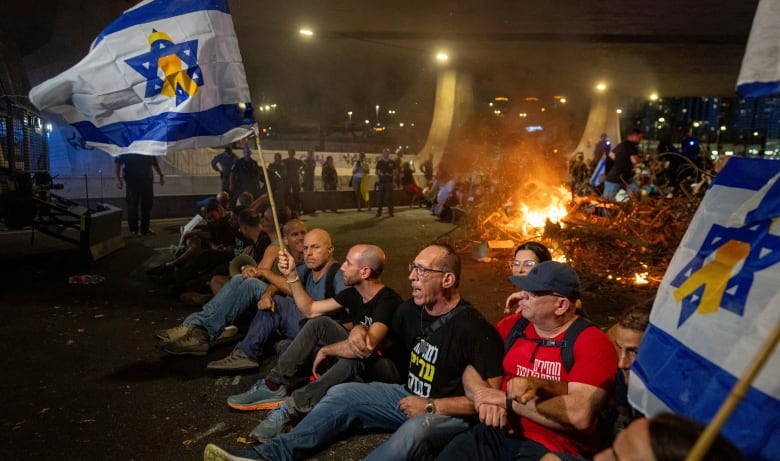
“We expected that to happen,” Israel’s UN Ambassador Danny Danon later told Israel’s I24 TV. Israel has not yet spoken at this session of the General Assembly and Prime Minister Netanyahu is not expected to attend in person.
“As with the secretary-general, the entire focus [of criticism of Israel at the UN] was about Gaza, and you saw the applause that he received. But when he spoke about our hostages, silence. And then listening to [President Recep Tayyip] Erdoğan from Turkey comparing our prime minister to Hitler, to the Nazi regime, it’s outrageous.
“We will stand strong and proud against those lies, against the libel, and I’m telling my colleagues in Israel, keep going.”
U.S. seeks common ground with Gulf Arab states
Perhaps feeling the sting of criticism, the administration of U.S. President Joe Biden responded to the escalation in Lebanon by seeking allies in the Arab world to join with it and G7 partners in calling for a three-week ceasefire.
But the arguments aired at the UN this week were not only about the current violence in Lebanon. Many were aimed at the fact that Israel has been able to maintain its occupation of Palestinian and Syrian territories for 57 years without significant pressure to withdraw.
The critics charge Israel’s western backers with hypocrisy for claiming to support a “rules-based” international order while allowing Israel to ignore multiple binding Security Council resolutions — most notably UNSC242 and UNSC338, which demand “withdrawal of Israeli armed forces from territories occupied” in the 1967 and 1973 wars.
Critics point out that countries such as Iran, Serbia and Iraq have been sanctioned, bombed or invaded for non-compliance with Security Council resolutions.
They also accuse western governments of citing the UN Charter against Russia while ignoring the fact that the same charter that applies to the occupation of Crimea and the Donbas also applies to Gaza and the West Bank.
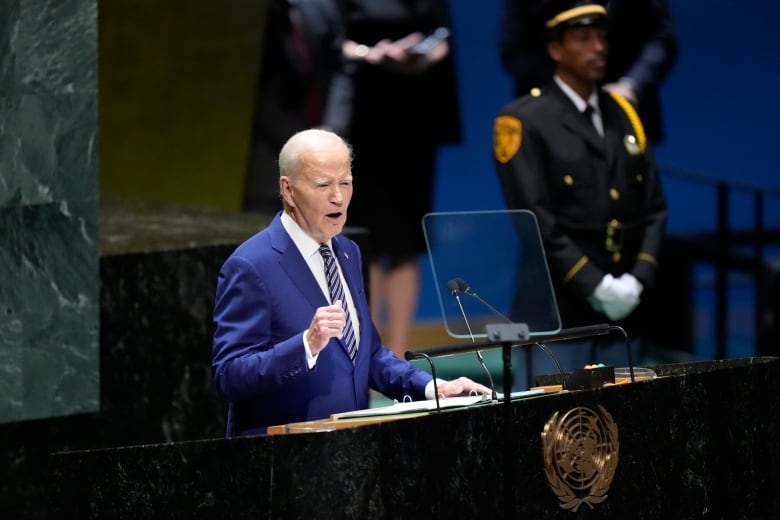
In President Biden’s speech to the General Assembly on Tuesday, he referred to the UN Charter five times in reference to Ukraine. “We defended the UN Charter and assured the survival of Ukraine as a free nation,” he told delegates. He did not mention the charter at all in his comments on the Israeli-Palestinian conflict.
Trudeau also cited the charter in reference to Ukraine.
“Russia’s illegal invasion of a neighbouring country cannot be allowed to stand,” he said. “It’s in direct violation of the charter of these United Nations, and it risks destabilizing principles of territorial integrity and sovereignty everywhere around the world. That’s why Canada and so many others are so unequivocal about ensuring that Ukraine has the tools to defend itself against this illegal invasion.”
Canada abstains
And yet Canada did equivocate, quite literally, by abstaining when the matter of the occupation of the Palestinian Territories came to a vote at the General Assembly last week. That vote followed an opinion by the International Court of Justice that Israel was violating international laws against apartheid and racial segregation, and that its occupation, settlements and annexations were all illegal.
“Canada always stands up for international law,” Trudeau said, when asked if that abstention did not undermine his professed support for the UN Charter. “That’s why we are unequivocal about needing a two-state solution.
“And the fact that, unfortunately, both sides in that particular conflict have withdrawn and are distancing themselves from a two-state solution is something that deeply preoccupies me and many, many other countries around the world. And we’re all continuing to work together to try and get there.”
The abstention reflects a more pro-Palestinian posture in 2024 than might have been expected in the first years of the Trudeau government, when it followed the pro-Israel voting pattern of the Harper government.
Splits grow within the West
For decades, different views of the Israeli-Palestinian conflict have complicated relations between western developed nations and the developing world — much of which sees the conflict through the lens of its own experience of western colonialism.
The recent General Assembly vote on the occupation of the Palestinian Territories showed that those divisions have now entered the G7 itself. The U.S. voted against the motion. France voted for it. Germany, Britain, Italy and Japan abstained, along with Canada.
The Russian government — fully aware of what much of the world sees as rank Western hypocrisy — has been eager to stir the pot. It has succeeded in undermining the West’s credibility, particularly through social media aimed at public opinion in Latin America and Africa, but has had less success convincing governments to support its annexation of eastern and southern Ukraine.
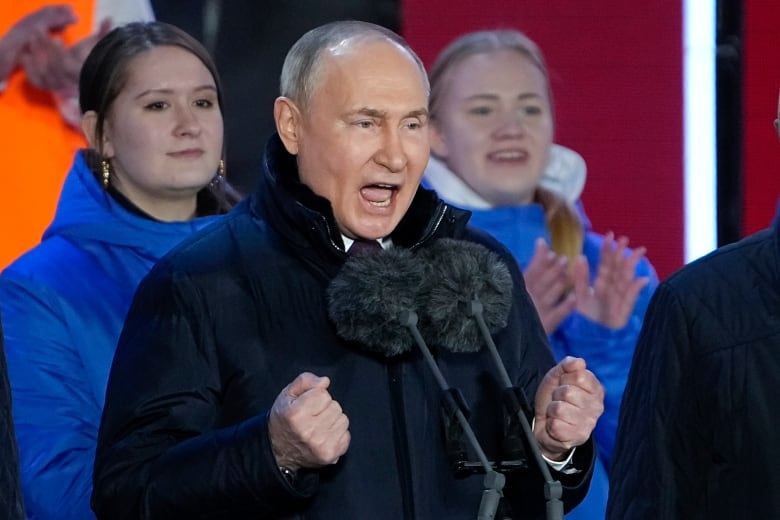
Asian, African and Latin American diplomats are generally sophisticated enough to see both the double standard and the Kremlin’s cynical motives for calling it out.
The U.S. has tried to defuse the anger by showing openness to another long-standing complaint of the developing world about the unrepresentative structure of the Security Council, where France and Britain have veto power but India — with twenty times the population of either — does not.
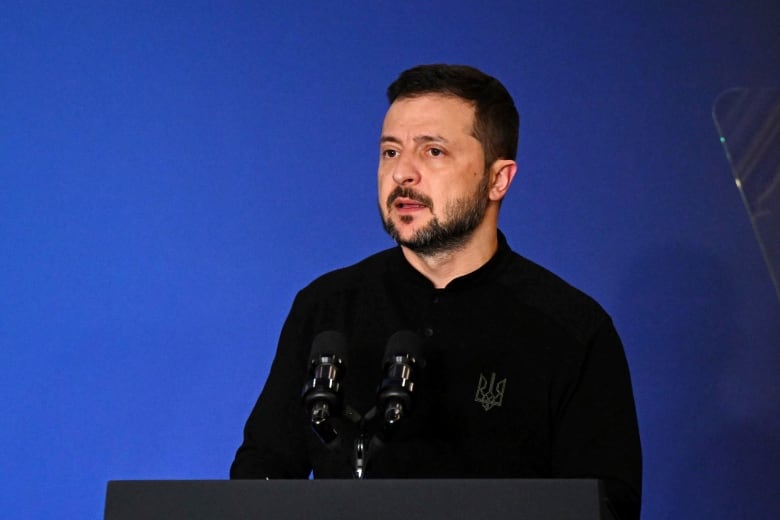
The allegation of double standards has been a problem for Ukraine, to the extent that Russia has tried to paint both Ukraine and Israel as rogue proteges of Washington. (The Kremlin’s framing ignores the fact that Ukraine is one of the 146 countries that recognize the State of Palestine.)
When invited to address the Security Council on Tuesday, Ukrainian President Volodymyr Zelenskyy spoke against double standards.
“We do not have different versions of the UN Charter for different parts of the world,” he said. “We do not have regional quasi charters. There is no separate UN Charter for BRICS or for the G7.
“There is one, one UN Charter which unites everyone, and must unite everyone.”